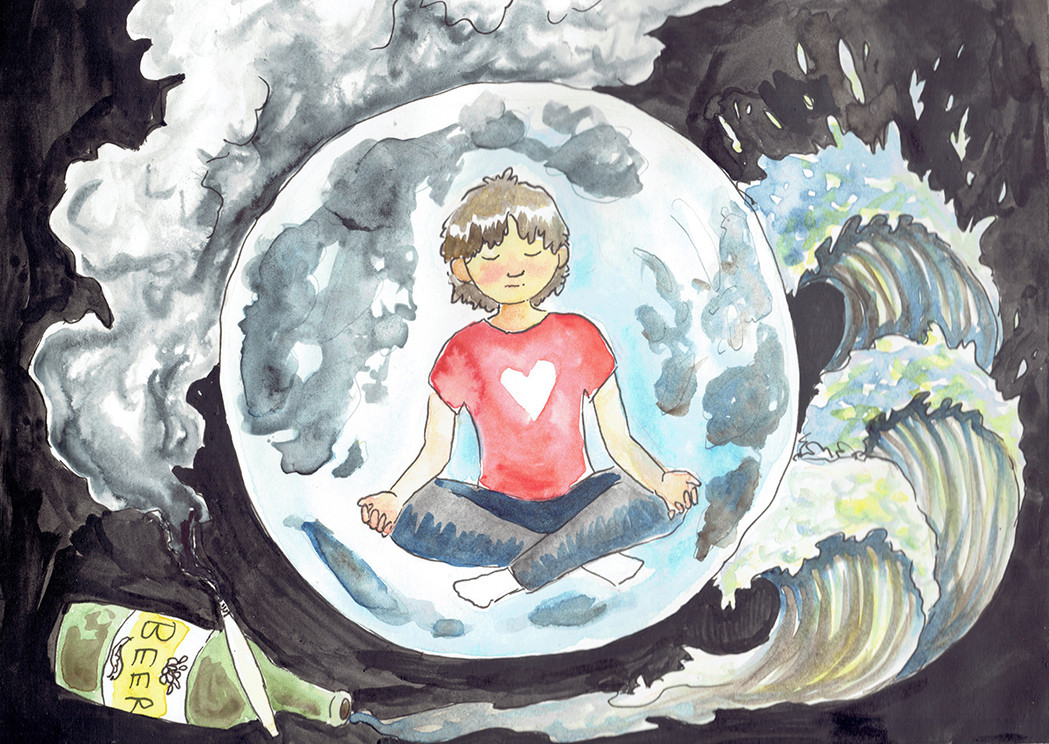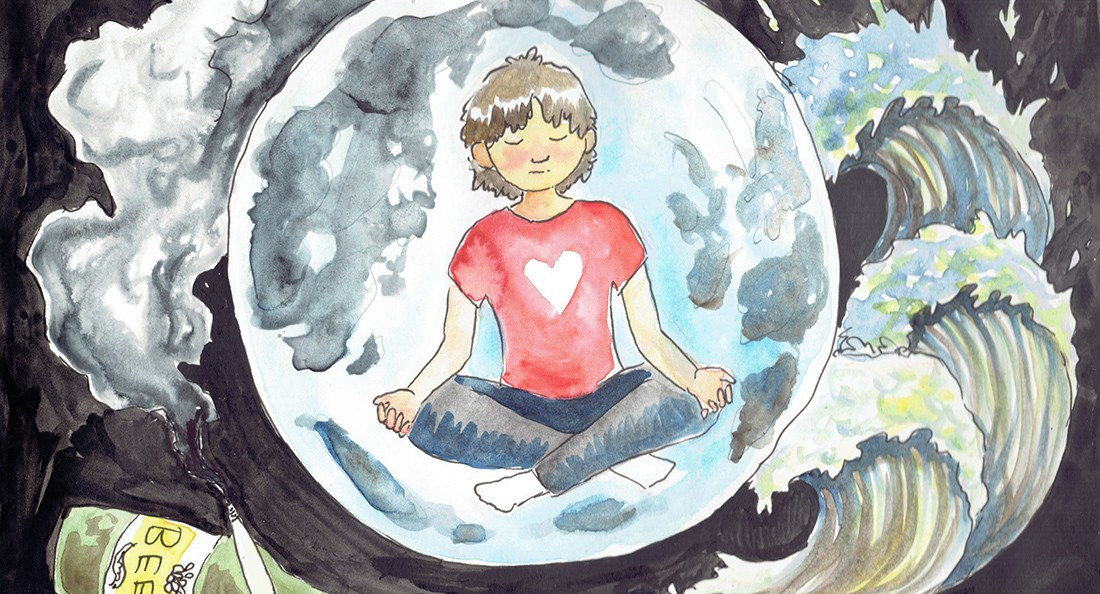Dry Wit
Staying sober when your heart is breaking
It's one thing to stay sober when life is going well. But how do you stay present in harder times?
Last January, my paternal grandma was diagnosed with terminal cancer. In her pragmatic style, my grandma responded to the news by exclaiming, "I KNEW I shouldn't have signed that two-year lease!"
Her no-nonsense wit and gallows humour set the pace for the rest of my family. Together, we joked. But we also each had to come to terms with the reality that we would soon lose one of the most dynamic, vital and energetic 81-year-olds we'd ever had the privilege of knowing.
When I heard of my grandma’s diagnosis, I broke down completely. Once the initial crush of the news faded, I followed my grandma's habit of pragmatism. "Oh shit," I thought. "I'm going to have to deal with this death sober."
When my maternal grandma died, I started smoking again and reached for whiskey as soon as we left the hospital. When my aunt committed suicide, I was drunk for a full week.
There was some wisdom I'd be able to draw from other hard times, but I knew I'd have to chart a new path for how to cope.
At first, I tried to keep my job as a place where I could live as "normal" for most of the week. All the small details I had to manage seemed completely absurd in the face of grief and loss. Cancer has a way of making commas seem irrelevant. But there's also a kind of serenity in considering proper hyphenation instead of constantly struggling to accept the inevitability of death.
I realized that I would have to make room for all of these facets of life to co-exist – the everyday and the surreal, the pedestrian and the heart-wrenching, the mundane and the morbid.
My grandma's cancer progressed quickly. My dad and uncle, who took care of a lot of logistics, kept introducing each stage as "the new normal,” but it was a moving target, and the only part of that phrase that felt true was "the new."
When each of these weekly, daily and hourly changes would hit, I tried to stop for a minute to get centred again. The grief came in waves, and it would leave a dull ache, but it wouldn't always be totally overwhelming.
Drinking seemed like it could offer reprieve, but that was a false promise. I had my non-alcoholic Grolsch, and the rest of my family had sidecars and wine and real beer. But we all hurt. I was grateful that I was only dehydrated from crying and not from hangovers too.
There were a lot of things I couldn't make better. I couldn't fix dying or grief or loss.
But I could hold fun conversations with my family at grandma’s bedside so she’d have something nice to listen to after she could no longer speak. I could rejoice in the small moments of joy that – remarkably – still managed to show up, even in the shadow of death.
I could try to eat enough food and sleep at night and move around a bit. I could ask for help when I was overwhelmed. I could do little things to make it suck less.
I could stay sober, and practice staying present. While that doesn’t seem like much, in hard times, it was the best thing I could do.
Anastasia Chipelski is the managing editor of The Uniter. If she grows up to be half as funny, feisty and smart as her grandma, she’ll probably be okay.

Published in Volume 71, Number 20 of The Uniter (February 16, 2017)








